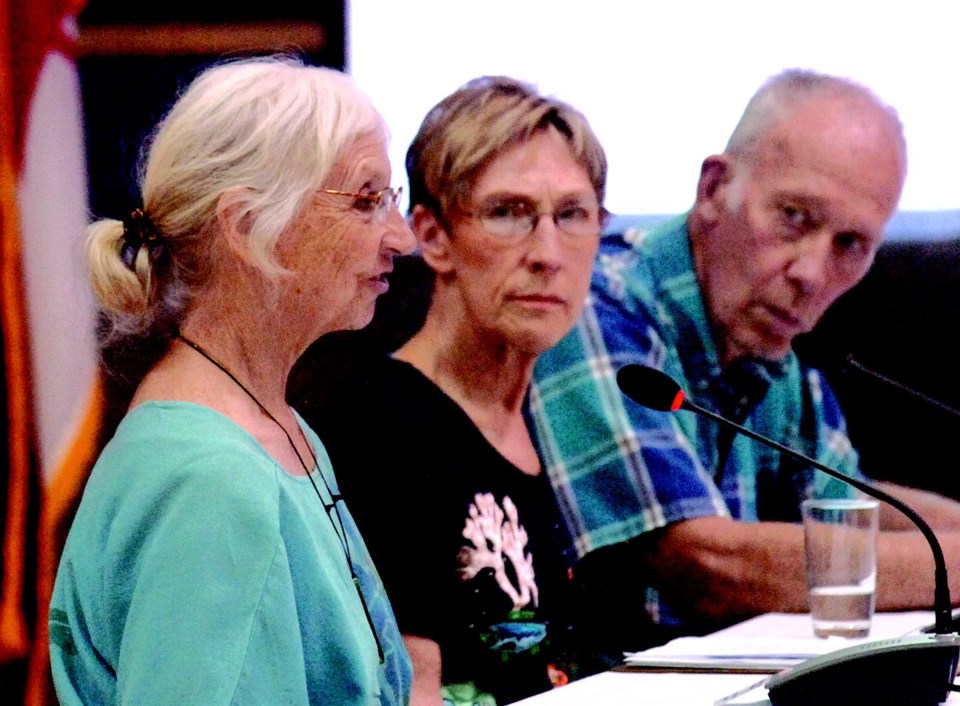Opponents of the Northern Gateway pipeline had fresh ammunition to lob at the company behind the mega-project on Tuesday.
The second day of public hearings in Prince George coincided with the release of a report by the National Transportation Safety Board in the United States, criticizing energy giant Enbridge for its handling of a spill in a pipeline near Marshall, Mich., in 2010. Crude oil was released into a wetland and eventually found its way into the Kalamazoo River. Cleanup efforts are still ongoing.
"It's just spills left, right and centre," Lisa Bland said before making her oral statement to the federal joint review panel at the Civic Centre. "It's really showing that despite all of the assurances that we get from the corporations, in the end it's the people in the communities (where spills happen) that are affected."
Enbridge is hoping to build the Northern Gateway project to connect the oil sands in Alberta with the port in Kitimat. The company believes it will open the Asian market for Canadian oil exports, which could lead to higher prices for Canadian producers. The company is also touting the economic impact of the construction of the pipeline and the hundreds of permanent jobs that would result.
The damning report could make that sales job that much more difficult.
As part of the report's findings, Enbridge was criticized for not reacting quickly enough to the spill when it happened and not taking proactive measures to prevent the leak. Enbridge also faces a potential US$3.7 million fine for the incident.
"It plays into trust and it plays into credibility," Phil Mullins said before making his presentation to the joint review panel.
Mullins brought his nine-month-old son along with him to the hearings because he feels future generations could also be negatively affected if the pipeline is allowed to proceed.
"Those that oppose the pipeline have often said: it's not a matter of if, but when, there's an oil spill," he added. "There have been oil spills in Enbridge's pipelines and it looks like they sat on that one for 17 hours before stopping it."
NTSB chairwoman Deborah Hersman said Enbridge responded like the "Keystone Kops" during the hours it took the company to stop the flow of oil once an alarm sounded signaling the possibility of a leak. She added that the spill should be a wake-up call for the public and regulators alike.
Company spokesman Todd Nogier acknowledged the need for Enbridge to continue to get its message out in light of the report. However, he insisted Enbridge has a strong safety record overall.
"If you look at our record over the long term, we have a very, very good record. Clearly some mistakes were made with respect to the Line 6B incident (in Michigan)," he said. "We have accepted responsibility for the incident itself and we've endeavored to take an in-depth look at our procedures and our operations and our resources."
The joint review panel is conducting hearing in communities along, or close to, the proposed pipeline route. In Prince George 80 people registered to give 10-minute oral presentations to the panel consisting of chairwoman Sheila Leggett and fellow panelists Kenneth Bateman and Hans Matthews. The committee will produce a report to for the federal government after the hearings conclude in January.


.png;w=120;h=113;mode=crop)
